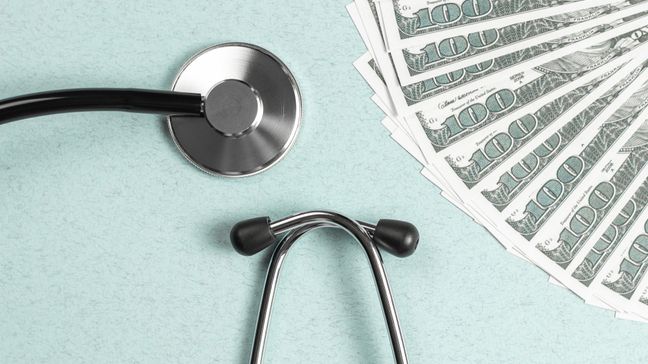Medical debt, away! Something like.
The three major credit bureaus in the US – Experian, TransUnion and Equifax – announced that almost all medical debt (about 70%) will be removed from credit reports this summer.
Earlier this year, The Consumer Financial Protection Bureau (CFPB) found that medical debt is the most common form of debt collection among consumer credit reports. Not only that, these negative scores, which can lower your score for up to seven years, are often the result of billing errors in our healthcare system.
So if you are one of 43 million Americans with medical debt on your report, you may see your credit score jump a few points after the new reporting rules go into effect on July 1st.
Here’s what you need to know.
How Medical Debt Can Affect Your Credit Score
If you owe a couple of hundred dollars to your doctor or hospital, it won’t automatically affect your credit score like it would if your credit card balance were smaller. The real problem starts when your debt goes unpaid for a long time and your health care provider turns your bill over to a collection agency in the hope of getting some of the costs back.
Let’s say a collection agency is unable to receive a payment on an overdue account within six months of receiving your balance. In this case, they can report it to the credit bureaus.
If the collection account is reported to the credit bureaus, your credit score may drop as much as possible. 110 pointsdepending on the credit scoring model used.
Worst part?
According to Equifax, collection accounts can remain on your record for up to seven years, even after payment. This, in turn, can lead to limited access to loans, insurance, and even housing, since all of these things are tied to your credit score.
Medical debt reporting changes to take effect this summer
at the joint statement released in MarchThe CEOs of Experian, TransUnion and Equifax have acknowledged that much of the backlog of medical bills is due to “medical unforeseen circumstances,” a problem that has worsened since the start of the pandemic.
Thus, to help consumers gain “fair and affordable access to credit,” agencies will implement the following changes:
- All paid medical bills will be removed from consumers’ credit reports, which will no longer lower their score for up to seven years.
- Collection agencies will now have to wait 12 months instead of six to report any unpaid balances, giving consumers more time to agree on a payment plan.
- Finally, if your medical bills are less than $500, they will no longer be included on your report, even if they are not paid.
These changes will be implemented automatically from July 1st. So, if you have medical debt on your report, you may see a significant increase in your score this summer.
How to know if medical debt is worsening your credit score
If you’re not sure if medical debt is affecting your credit score, the best thing you can do is request a copy of your credit report to find out.
You can get a free copy of your credit report from all three bureaus by visiting AnnualCreditReport.com. While these reports will not show your credit score, you will be able to see a list of all your debts, their balance, the status and list of your creditors, and their contact information.
Similarly, some banks and credit card companies, such as american expressalso let you check your credit report for free, even if you don’t have an account with them.
What to do if medical debt still appears on your report after July 1st
All eligible medical fee debt should automatically disappear in a thin fog after July 1st, but in the unlikely event that your debt doesn’t disappear, you have two options.
First, you can contact your health care provider or collection agency to dispute the payment.
This is the best way to do this, as they will be able to send updates to all credit bureaus at the same time, saving you the hassle of filing three separate disputes.
But if you prefer not to deal with a healthcare provider or collection agency, you can also file a dispute directly with a credit bureau.
You can do this online or by mail. However, I highly recommend using the online route as it is faster. In addition to your personal information (name, address, social security number, etc.), you will be required to provide any receipts or letters proving that the account in question may be removed from your report.
For your convenience, here are the links for filing a dispute with each of the bureaus:
And remember: you will have to take turns doing this, as credit bureaus do not exchange information with each other. So just because you disputed a bug with Experian doesn’t mean it won’t show up in your report from TransUnion or Equifax.
Likewise, contesting an account will only work if:
- Your debt has been paid.
- The amount owed is less than $500.
- The account was sent to the collection less than a year ago.
Otherwise, it will remain in your report.
Last thing
Even if medical debt isn’t listed on your credit report, that doesn’t mean you’re off the hook.
You still have obligations to your healthcare provider or collection agency, so it’s best to contact them to explore repayment options if you’re having difficulty paying. I know this may be easier said than done, but it can save you a lot of headaches in the future.
Summary
Medical debt can negatively affect your credit history. However, these new changes are intended to help you fix things. The most important thing is to keep a close eye on your report, especially after July 1st, to make sure your account is not dragged by mistake.
Featured Image: Evgeniya Terekhova/Shutterstock.com


